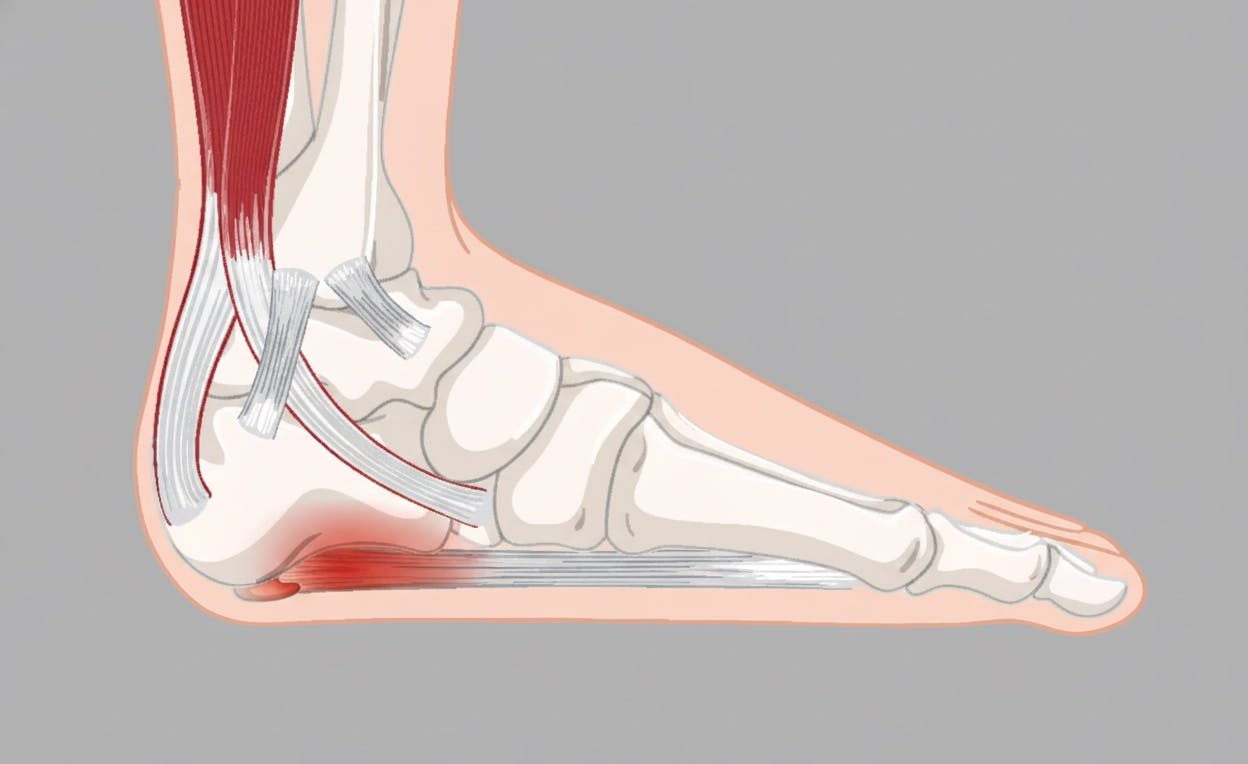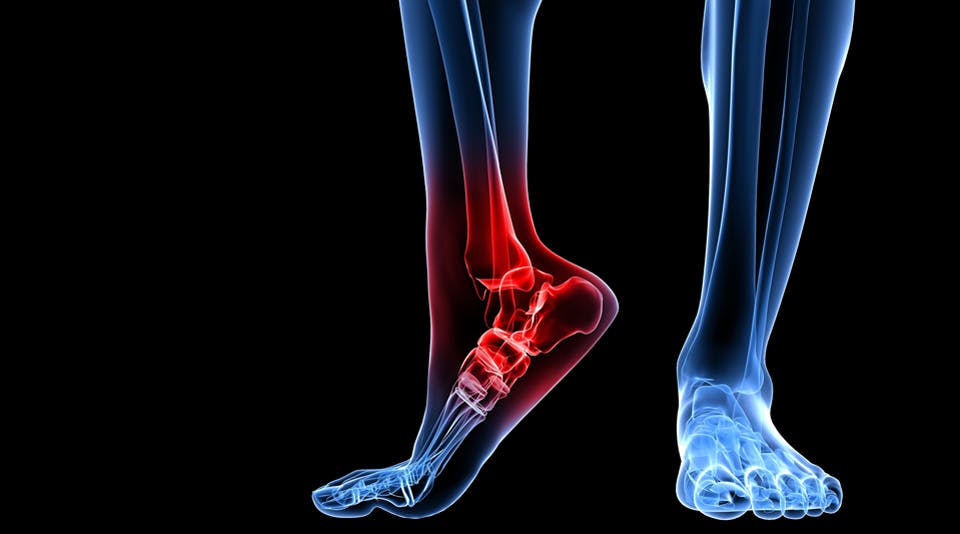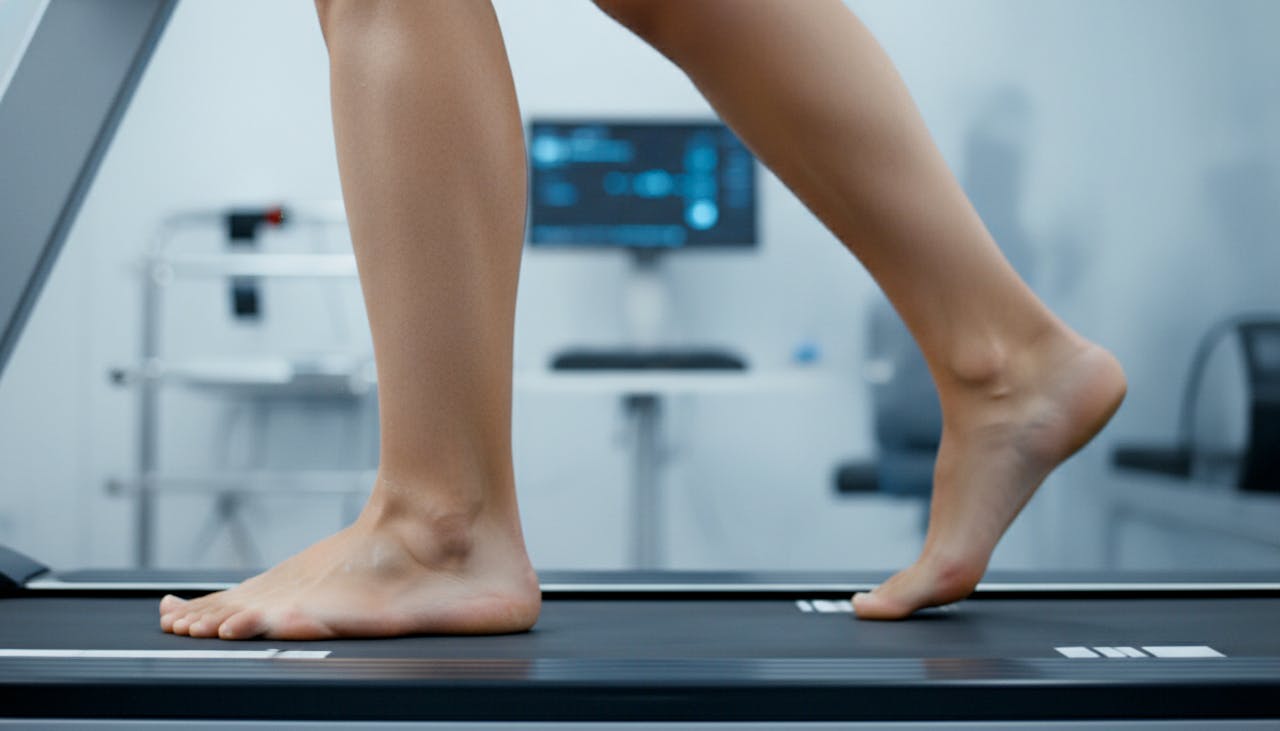
Plantar Fasciitis
Plantar fasciitis is the most common cause of heel pain, characterised by a sharp, stabbing sensation in the bottom of the foot that is typically worst during the first few steps in the morning.
Overview
What is it?
The plantar fascia is a thick, strong band of connective tissue that runs along the sole of your foot, connecting your heel bone to your toes. It acts like a bowstring to support the arch of your foot and absorb shock when walking. Plantar fasciitis occurs when this band becomes irritated, inflamed, or develops micro-tears due to excessive strain.
How common is it?
It is exceptionally common, estimated to affect 1 in 10 people at some point in their lifetime. It frequently affects runners, people who are overweight, and those whose jobs require long periods of standing on hard surfaces.

Symptoms & Causes
What are the symptoms?
The classic symptom is pain on the bottom of the foot, near the heel.
- "First-Step" Pain: The pain is almost always most intense during the very first steps after waking up in the morning, or after a long period of sitting. This is known as 'post-static dyskinesia'.
- Warming Up: The pain often decreases as you move around and the tissue warms up, only to return later in the day after prolonged activity.
What does it feel like?
It is usually described as a sharp, stabbing, or burning pain in the heel. In chronic cases, it can become a constant, dull ache.
What causes it?
Fundamentally, it is an overuse injury caused by too much strain on the arch.
- Biomechanics: This is a major factor we see at Foot Factor. If you have flat feet (overpronation), the arch collapses excessively, overstretching the fascia. Conversely, very high, rigid arches do not absorb shock well, transferring all the impact to the fascia.
- Tight Muscles: Tight calf muscles and Achilles tendons limit ankle movement, forcing the plantar fascia to work harder.
- Footwear: Wearing unsupportive shoes on hard surfaces.
- Activity Changes: A sudden increase in walking or running mileage.
Some health conditions can include:
- Obesity: Excess weight puts significant extra steady-state load on the fascia.

How is it Diagnosed?
Diagnosis is usually straightforward and is based on standard clinical findings.
What tests are used to diagnose it?
- Clinical History: The description of "pain with the first step in the morning" is almost diagnostic on its own.
- Physical Examination: We will press on the specific spot where the fascia attaches to the heel bone (medial calcaneal tubercle). Intense tenderness here confirms the diagnosis.
- Imaging: X-rays or ultrasound are generally only needed if your case is atypical or not responding to treatment, primarily to rule out other causes like stress fractures. Note: "Heel spurs" are often seen on X-rays but are rarely the actual cause of the pain.
Foot Factor provides Expert Podiatry Treatment Tailored to You.
At Foot Factor, our podiatrists specialise in diagnosing and treating foot pain with precision and expertise. With advanced gait analysis, bespoke orthotics, and sports-focused podiatry care, we don’t just identify the problem—we provide a targeted solution to get you back to moving pain-free. Book a consultation today and take the first step toward lasting relief.

How is it Treated?
Plantar fasciitis can be stubborn, but it almost always resolves with a dedicated, multi-faceted conservative treatment plan.
- Biomechanical Correction (Orthotics): This is often the cornerstone of long-term relief. Custom orthotics can support the arch, stop excessive collapsing, and crucially, offload the specifically painful area of the heel to allow it to heal while you continue to walk.
- Stretching Programme: A disciplined daily routine of stretching firmly tight calf muscles and the plantar fascia itself is essential.
- Night Splints: These devices hold your foot in a stretched position while you sleep, preventing the fascia from tightening up overnight and reducing that intense morning pain.
- Advanced Therapies: For persistent cases, we may recommend Shockwave Therapy to stimulate a healing response in chronic, non-healing tissue.
Our Bespoke Orthotics give you the Right Support for Long-Term Relief.
At Foot Factor, our podiatrists specialise in diagnosing and treating foot pain with precision and expertise. With advanced gait analysis, bespoke orthotics, and sports-focused podiatry care, we don’t just identify the problem—we provide a targeted solution to get you back to moving pain-free. Book a consultation today and take the first step toward lasting relief.
Related Articles
Find expert tips, advice, and insights to support your foot health and active lifestyle.


